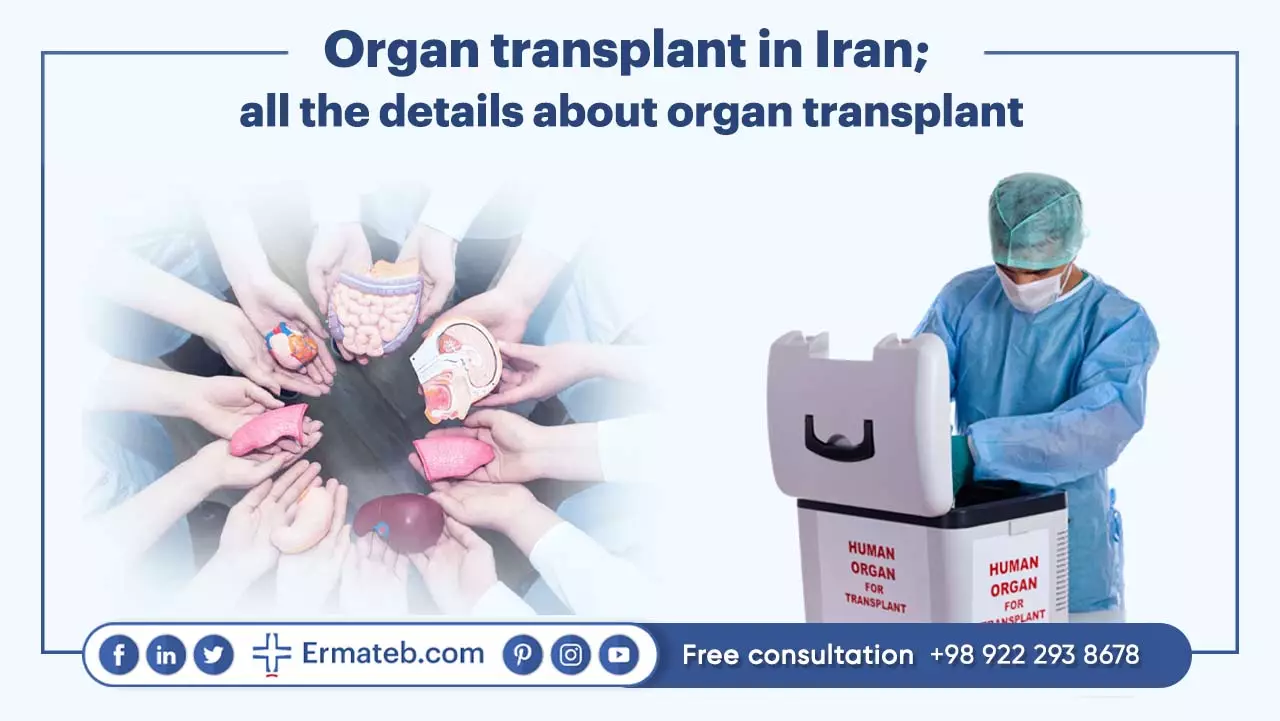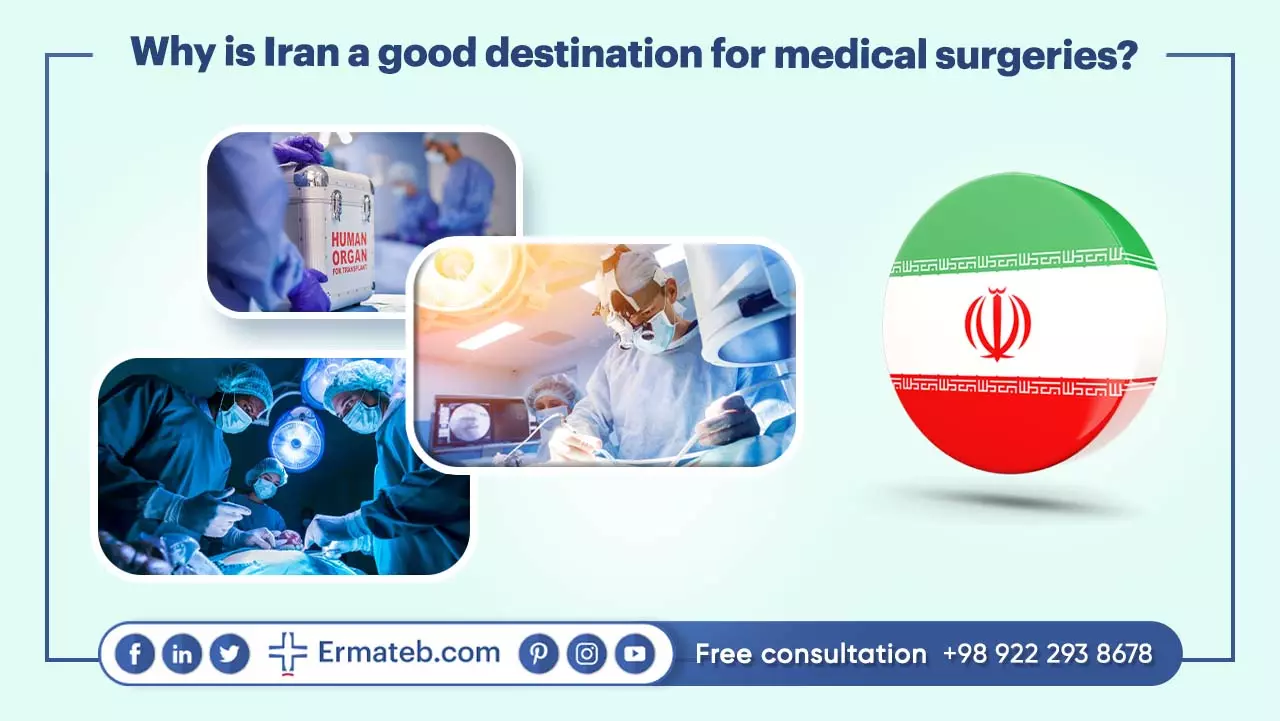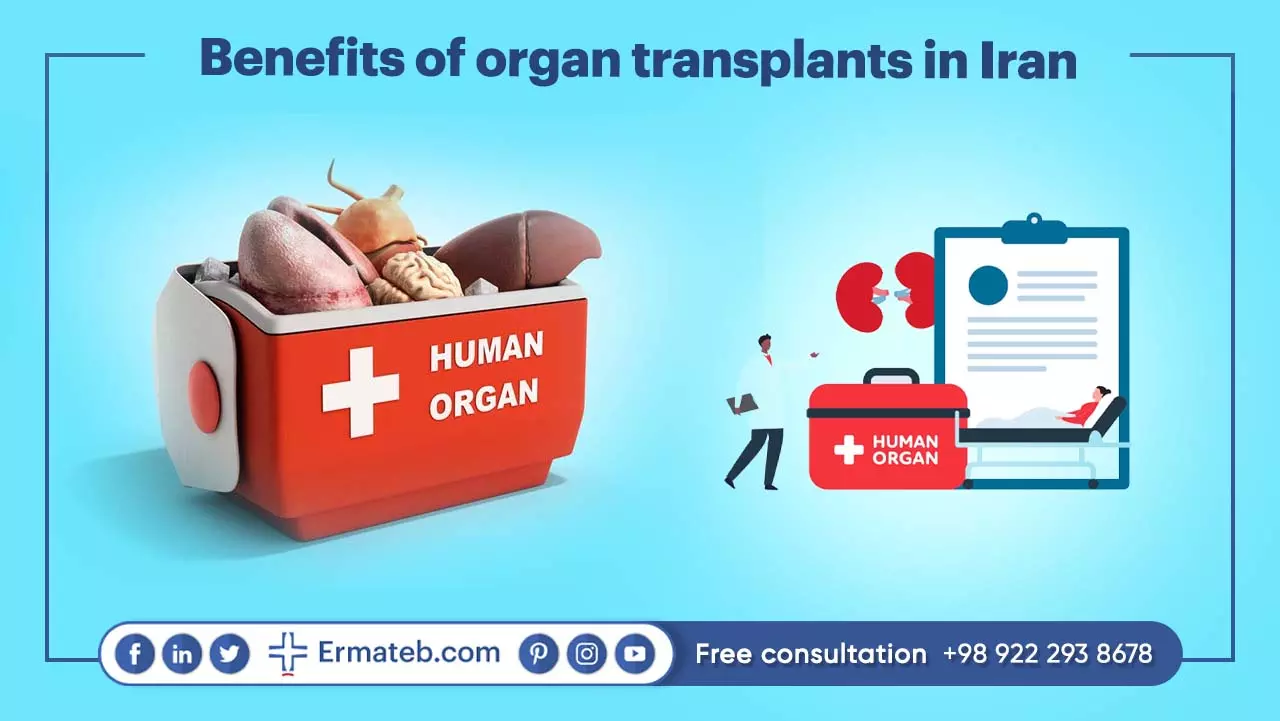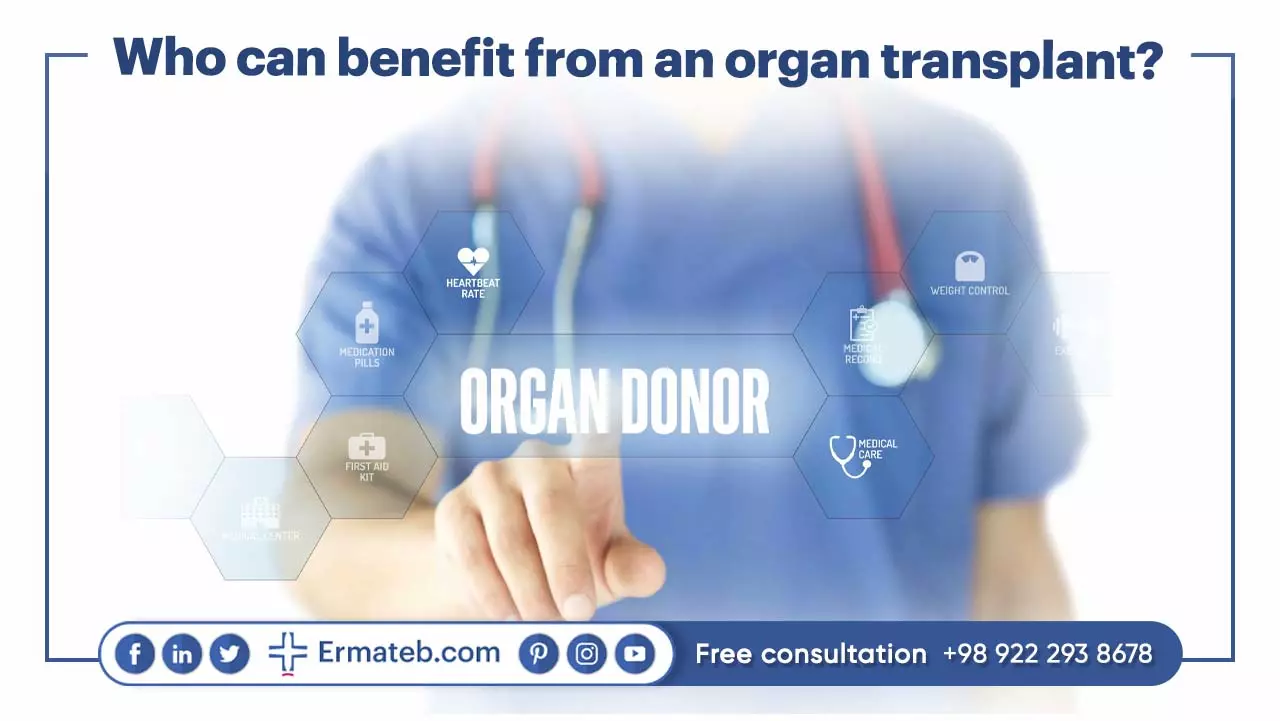
Organ transplants are one of the most important and new issues in medical science. All around the world, so many people hope to have this treatment, and thanks to the development of medical science, it is now possible for every individual to have an organ transplant, and in some cases, save their lives! By having an organ transplant in Iran, you can do this treatment at such an unbelievable cost.
The organs of a brain-dead person can still work and all we have to do is to donate these organs and save the lives of individuals who need organ transplants. It will be done by replacing a diseased or damaged organ with a new healthy one. Many chronic diseases lead to organ failure in the end, which causes physical disability or even death. That is why this is an important treatment and is the best option to cure such complications.
Organ transplants will be done from a living or cadaveric source and the presence of transplant centers in many countries all around the world including Iran. This country has a high demand for organ transplants. The most common of these transplants is a kidney transplant, which has the highest rate in the world. Since Iran uses a unique system for this treatment, living donors can legally sell their kidneys to recipients who need them. Nowadays, more than 5000 transplants perform each year including kidney transplants, liver and heart transplants, etc.
Iran has always been one of the best destinations for individuals (especially those from Middle Easterners) seeking medical attention. In the case of medical surgery, Iranian surgeons and specialists are the best. These specialists have gained in-depth knowledge and the latest techniques. That is why if you want to have your treatment overseas, we suggest getting your medical surgery in Iran.
The paragraphs below give you a lot of information and help you to know more about organ transplant in Iran, what are the risks or the side effects of these surgeries, and frequently asked questions in the end.

While we consider organ transplants an amazing treatment and a new hope for those whose lives are at risk, it increases many social, ethical, cultural, and legal problems. Some of these problems are the criteria for organ allocation, the definition of death, the consent of donors and recipients, the prevention of organ trafficking, and the financial relationship. Some of the tissues that can be transplanted are tendons, skin, cornea, bones, heart valves, nerves, and veins. Among these tissues, musculoskeletal grafts and the cornea are more common.
Ethical issues may be complicated due to various social factors like religion, or traditions of the affected communities. Therefore, eliminating barriers and solving problems can decrease the costs of maintaining brain-dead patients, encourage patients who need organ transplants, and also prevent illegal and immoral activities.
Organ transplants are a complex treatment that requires a close match between the one who is the recipient and the one who is the donor. They must have compatible blood types, and also other factors such as size, tissue type, and crossmatch should be taken into consideration.
After the treatment, the recipient should take immunosuppressant medications to prevent their body from rejecting the transplanted tissue or organ.
The lung is the most difficult organ to transplant since they are highly susceptible to infections.

Iran has always been a good destination in terms of medical, and also cosmetic surgeries. It is because the country offers patients the best quality of medical treatments, outstanding hospitals, and also, excellent doctors and specialists are settled in Iran. With the use of new technological developments, Iranian surgeons and specialists have proved to be the best in the Middle East. They have completed their courses at the top universities in the world. They also have done so many successful surgeries in terms of organ transplants and saved so many lives. Therefore, you don’t have to worry about your treatment. If you’re living in countries like the USA, or any other country where the prices of medical treatments, especially organ transplants, will cost you an arm and leg, consider having your organ transplant in Iran.
The prices of these treatments here are not equal to other countries. You can get your surgery at a high quality while paying low. The high number of applicants, and low currency (which is the most important reason for the low prices) are the reasons why Iran offers the best services at a low cost.
Medical tourism companies are ready to help you during your treatment. Ermateb is a facilitator in the medical tourism industry located at Iran University of Medical Sciences. We try to offer the patients the most effective and affordable medical treatments in Iran performed by the best specialists at advanced hospitals. The treatments will be done with the newest technologies here at an unbelievably low cost. Ermateb will do all the arrangements for your trip to this country. you can reach us on the messaging app WhatsApp, or you can reach us by filling out the online form on our website. Leave all the necessary services in our hands and enjoy your trip.
After all, having your treatment overseas has some other advantages. Despite your treatment, you can visit and enjoy the historical and cultural attractions of a new country.
While organ transplant is a life-saving treatment, it has its risks and complications. You should consider these risks. You can read some of the risks and complications below:
1. Rejection: This happens when the recipient body’s immune system attacks the transplanted organ because it recognizes it as a foreign object. It can happen at any time after the surgery but usually happens in the first few months. Rejection also can cause symptoms like pain, fever, swelling, and decreased function of the organ. It can be treated with immunosuppressant medication, which lowers the immune system’s activity and then prevents attacking the transplanted organ.
2. Complications of immunosuppressant medications: These drugs will be used to prevent rejection, but they can affect many parts of the body and lead to various problems, such as high blood pressure, diabetes, high cholesterol, kidney damage, bone loss, liver damage, stomach ulcers, hair growth or loss, mood swings, and acne. Some of these complications can be managed by lifestyle changes and other medications.
3. Infection: your body may get infected by viruses, bacteria, fungi, or parasites. It can happen because of the operation, the donor organ, or the immunosuppressant medications. These drugs make the natural defenses of the body weak, and then the body will be more vulnerable to infections. Infection may cause symptoms such as fever, cough, chills, sore throat, and skin rashes. Of course, infection can be treated by antifungal, antibiotics, or antiviral medications.
4. Complications of surgery: The complications of surgery can occur during and after the transplant operation. Side effects of the procedure can include blood clots, bleeding, pneumonia, allergic reactions to anesthesia, injury to other organs, and even death. Side effects of the procedure are rare and depend on the type of organ transplanted.
You may not experience all of the things we have said above. Some patients may experience rejection or infection while others might face complications of the surgery or immunosuppressant medications. The point is if you notice any weird and unreasonable symptoms or complications, visit your doctor immediately and inform them about your condition.

1.decreasing medical costs: Organ transplants will decrease the medical costs associated with long-term care of the organ or treatment of organ failure. For instance, a kidney transplant can save more than $300,000 per patient compared to dialysis over 5 years, or a heart transplant can save more than $1.4 million per patient.
2.Make the quality of life better: Organ transplants can improve the quality of life of people who have debilitating or chronic conditions that affect their independence and routine activities. For instance, a kidney transplant will eliminate the need for dialysis and let individuals have a normal diet. A cornea transplant will also restore sight in individuals with corneal blindness. And a pancreas transplant will regulate the blood sugar in individuals with diabetes.
3.Increasing social and psychological well-being: Organ transplants can increase the social and psychological well-being of individuals who get a new organ. For instance, people who are organ recipients may experience enhanced self-esteem, happiness, confidence, and gratitude. They might also have more opportunities to follow their personal and educational desires, and may also develop meaningful relationships with the donors or other organ recipients.
By having the organ transplant you need, you can simply live your life after the operation. For example, if you have faced kidney failure and need to have a kidney transplant, after having your operation, the need for dialysis will be removed, your quality of life will be improved, and therefore you don’t have to struggle with your disease and its pain or costly treatments.

Candidates for an organ transplant are those with a serious medical condition that affects the function of their other organs. Some of the medical conditions that may need an organ transplant are:
It happens when your kidneys lose the ability to filter waste and excess fluid from the blood.
It occurs when the liver loses the ability to perform its vital functions, like detoxifying the body, producing bile, and regulating blood sugar. People who have liver failure may suffer from bleeding, jaundice, confusion, swelling, and coma. A liver transplant will cure some liver diseases like cirrhosis.
It is when the heart gets weak and can’t pump enough blood to handle the body’s needs. Individuals who have heart failure may experience shortness of breath, swelling, fatigue, chest pain, or irregular heartbeat. Having a heart transplant will restore normal heart function and improve quality of life.
It occurs when the lungs can’t provide enough oxygen to the blood or eliminate enough carbon dioxide from it. individuals with lung failure have some difficulties like breathing, wheezing, coughing, and low oxygen levels in the blood. A lung transplant will improve the breathing and oxygenation of individuals with lung diseases, such as pulmonary fibrosis and cystic fibrosis.
This issue happens when the pancreas can’t produce enough insulin. People who have pancreas failure may have diabetes, a condition that can lead to side effects such as nerve damage, eye damage, kidney damage, or heart disease. Therefore, a pancreas transplant can regulate blood sugar levels and decrease the need for insulin injections.
the cornea becomes diseased or damaged and then affects vision. Individuals who have corneal blindness experience blurred vision, sensitivity to light, pain, and infection. A cornea transplant will restore sight in individuals who have corneal blindness.
There are so many other conditions that might need an organ transplant, like thymus deficiency, intestinal failure, uterine infertility, etc.
the existing incidence of chronic diseases like diabetes, hypertension, obesity, and kidney disease raises the need for organ transplant in Iran.
The recovery period of an organ transplant is the time following the operation when the donor and especially the recipient heal. The recovery period of this kind of surgery depends on the type of organ, the donor’s health, the recipient’s health, and the surgical technique used. However, there are some general steps and stages of the recovery process:
For the donor: The donor is taken to ICU following the operation to monitor their vital symptoms and prevent any side effects. The donor may have some pain, discomfort, and fatigue after the procedure, which can be managed with drugs and rest. The donor may require blood transfusions or fluids to replace the blood lost during the operation. Afterward, he/she may stay in the hospital for a few days or some weeks. It depends on their recovery rate and the type of organ donated. For instance, a kidney donor may require to stay in the hospital for 1 to 3 nights, while a liver donor may need to stay for 5 to 7 days. The doctor will give the donor some instructions on how to care for their wound and resume their routine activities gradually. Also, the donor will be required to have regular visits with their doctor to check their health and organ function. He/she may also require some emotional support for any psychological problems that might occur after the donation, for example, depression, anxiety, or guilt.
For the recipient: he/she is also taken to the ICU following the procedure to monitor their vital symptoms and prevent any side effects. They may also experience some discomfort, pain, and fatigue after the operation, which can be managed with certain drugs. The recipient will receive immunosuppressant medications to prevent the body’s immune system from rejecting the new organ. These medications will require to be used for life and they also have some complications, like an increased risk of cancer or infection. The recipient, like the donor, may need to stay in the hospital for a few days or some weeks. It depends on their recovery rate and the type of organ. For instance, a kidney recipient may require to stay in the hospital for about 3 to 8 days, while a liver recipient may require to stay for 10 to 15 days. The recipient will also receive instructions to get informed about how to care for their wound or prevent infection and also follow a healthy lifestyle that is appropriate for their new organ. He/she will be required to have regular follow-up visits with the doctor to check their organ function and health status. In addition, the recipient may require some emotional support for the problems that may occur after the operation, such as depression, anxiety, and gratitude.
Someone should take care of you during this time. It is so normal if your recovery process takes some time. Make sure to follow the postoperative instructions that your doctor prescribes.
If you are looking for an effective and affordable organ transplant in Iran, you can contact us now to get more information about choosing the best doctor and surgeon, the qualified hospital, the hotel, obtaining the visa, booking the flight and accommodation, transportation, aftercare, and all the services you need to receive during your travel to this country.
One of the important goals of our company is to provide services of the highest quality. Throughout your treatment duration, Ermateb will be with you. You don’t need to worry about anything about your trip or treatment. We will make sure patients get the best medical treatments in this country and enjoy their travel to Iran.